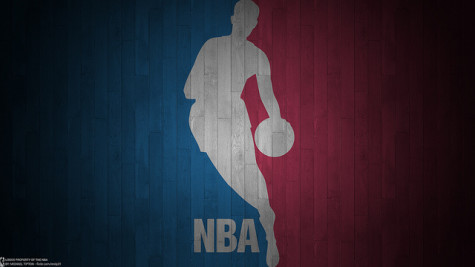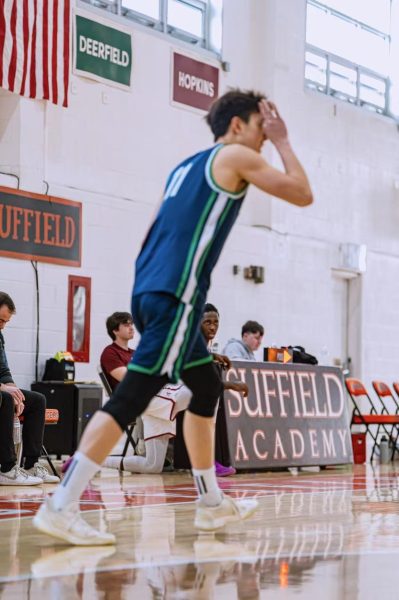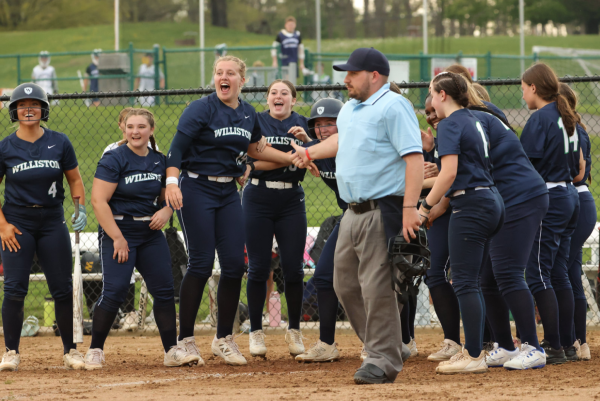To Quit is Not an Option
Dennis Crommett, Williston Northampton Flickr
Williston student athletes spend time with 2016 Hall of Fame Inductees.
Sports psychologists observe the impact of an athlete’s mindset, readying athletes to overcome obstacles in games and improve their performance and confidence.
But, how do student-athletes cope with a loss? How much of an effect does it have on their academic lives?
Some students believe skipping out on their academic priorities after losing a game is excusable, Mr. Thompson, Director of Psychological Counseling Services at Williston, says, “I don’t think a student missing school or rescheduling tests/assessments because a person has lost a game is ever a good idea. A big part of developing mental toughness is learning from experiences—good or bad—and moving on.”
Furthermore, part of being an athlete is experiencing great wins and losses. This mental strength is considered important for all athletes, as it prepares them to handle themselves appropriately in pressure situations. This mental strength also helps to boost confidence levels in support of their game performance.
Mr. Thompson says, “Players need to learn how to rebound from losing and get back to work as soon as possible.”
Ms. Fulcher, head coach of the Girls’ Varsity Soccer Team, commented on ‘hard’ practices after losing a game. “My practices after a loss are not any harder. I approach learning and practice with the same expectations no matter what the scoreboard says the day before.”
“It is about pushing yourself to give your best effort every day. To compete every day. And to bring out the best in your teammates every day,” Ms. Fulcher adds.
Key to a player’s confidence is having a good coach who pushes them to be a better player from the sidelines. Many coaches spend the majority of their time sharpening and polishing the skills of their players to help the players perform their best.
When asked what makes a great coach, Ms. Fulcher said, “A great coach finds a way to reach each player to want to be their best and to believe they are capable of great things, more than they thought possible.”
Losing a game can be rough. So, is there a correct way to cope with a loss? To this, Mr. Thompson says, “I don’t know if there is a ‘correct’ way, but there are definitely better and worse ways to cope with game losses.”
Ms. Fulcher elaborates, “You play to win and love the process of competition!”
It is common for athletes to want to quit if they think they will lose the game. For an article in Psychological Science, researchers conducted an experiment where they gave people a puzzle and an option to quit at any time. They thought that giving the option to quit to those people would cause them to quit early. Surprisingly, they found the exact opposite was true.
Williston sophomore Maya Soley, a member of the Varsity Swim Team, noted, “I just kind of shrug it off [about losing a game]. I try to make a point to do better next time.”
This applies to athletes who set goals for themselves. If athletes have the option to quit, they tend to become more persistent and accomplish more.
When asked about how positivity from coaches affects the moods of her players, Ms. Fulcher responded, “I do think body language and facial expressions have a big impact on players. Staying positive and showing that on your face is key to players knowing you believe in them even when they make mistakes. That might be when they need the positive feedback the most.”
Mr. Thompson notes, “If each player can understand that each contest is a learning experience in which he/she has the opportunity to look at he/she did well and also explores what he/she might want to improve upon, then that person is engaging in a growthful and positive mindset.”
He adds, “That’s a much better way to deal with loss than getting down on oneself and letting the experience ruin the rest of the day, week, etc.”
Mental toughness gives athletes an advantage to those athletes who are unable to engage into a mindset that enforces them to be able to work under pressure. Mental toughness is what crosses the line between a good athlete and a great one.













